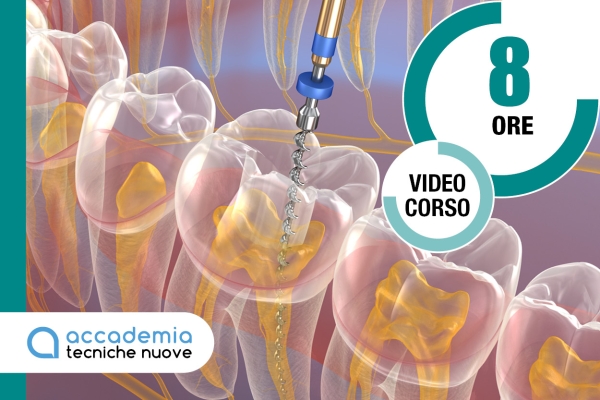Recessions. All types of flap & tunnel techniques

Lesson 1. Coronally Advanced Flap: When a Connective Tissue Graft Is Needed?
– Coronally advanced flap: indications
– Connective tissue graft sampling:
- Trap door
- "L" technique
- Envelope technique
– Selection of the donor zone for graft collection
– Advantages of de-epithelized graft
– Closing recessions: anatomical and clinical aspects of the choice of treatment method
– Surgical protocol for the treatment of a single recession: a clinical example
– Closing multiple recessions: a technique for creating a forced recession
– Treatment of gingival recessions in the molar region: protocol
**Recommended for:** Implantologist, Periodontist, General Dentists
---
Lesson 2. VISTA: Periodontal Plastic Surgery (Part 2)
– Peri-implant plastic surgery: indications and risk assessment
– Gingiva vs peri-implant mucosa
– Significance of peri-implant mucosa
– Importance of implant position
– Soft tissue augmentation techniques:
- Free gingival graft (FGG)
- Allograft/xenograft
- L-PRF
- Pedicle flap
- Vascularized inter-position (VIP) graft
- VISTA
– Material selection:
- Connective tissue graft (CTG)
- Tuberousity
- Allograft/xenograft
- Growth factors
– Extraction socket management
– Soft tissue management during implantation
– Flap design
– Vestibular depth management:
- Fibrin immobilisation vestibular extension (FIVE) technique
– Esthetic enhancement
– Clinical cases
---
Lesson 3. VISTA: Periodontal Plastic Surgery (Part 1)
– Periodontal plastic surgery: indications and risk assessment
– Periodontal plastic surgery techniques:
- Coronally advanced flap
- Laterally closed tunnel
- Pinhole surgical technique
- Vestibular incision subperiostal tunnel access (VISTA)
– Root prominence classification
– Odontoplasty
– Recession outcome predictors:
- Flap tension
- Gingival margin position
- Flap thickness
– Full and partial thickness flap: comparison
– Material selection:
- Autograft
- Allograft
- Growth factors
– Tuberosity harvest
– VISTA:
- Advantages
- Step-by-step protocols
- Clinical cases
- Long-term results
---
Lesson 4. Surgical Recession Coverage with a Modified Coronal Advanced Tunnel Technique
Information on the lecturer's participation is to be updated.
---
Lesson 5. Treatment of Deep (Severe) Gingival Recessions with LAST (Laterally Stretched Flaps)
– Diagnosis and decision criteria for treatment of gingival recessions
– Treatment alternatives for deep/narrow and deep/wide recession defects
– The Laterally Stretched Flap concept: technical variants
– Palatal connective tissue harvesting with the Modified Double Blade Harvesting Technique
– Selection of an adequate grafting technique and graft customization to the recipient bed
– Management of complex cases: multiple deep recessions
---
Lesson 6. Localised Gingival Recessions: Definition, Classification, Aetiology and Risk Factors
– The lesions amenable for root coverage procedures
– Classification of these lesions and defining the most important factors in their diagnosis
– The aetiology and pathogenesis in the development of LGR
– The risk and predisposing factors for the development of LGR
– The consequences of treating and non-treating these lesions
– The current approaches to their management
---
Lesson 7. Soft Tissue Management in Periodontal Regeneration: Interproximal Attachment Gain in RT3
– The adequate healing time of the periodontium after non-surgical therapy
– How to make clinical decisions based on the site’s phenotype
– The operative sequence according to the defect’s characteristics
– The most advanced plastic regenerative surgical techniques for interdental attachment gain
– Techniques to treat RT3 recessions
**Recommended for:** Implantologist, Periodontist, General Dentists
---
Lesson 8. Root Coverage Decision Tree Revisited: Tunnel or Flap Procedures
– Decision-making strategies for treating various forms of recession
– The decision tree
– Advantages and disadvantages of using tunneling procedures and regular flaps
– Comparative characteristics of autologous tissue graft vs substitutes and growth factors
– The etiology of the gingival recessions
– When applying the connective tissue graft
– The role of the growth factors
– The proper indications of the tunneling procedure
– The technique step by step
---
Lesson 9. Tunnel Technique for Single and Multiple Gingival Recession
– Mucogingival surgery: principles of biological healing
– Phases of graft healing
– Split and full-layer flap: advantages and disadvantages
– RT classification of recessions
– Bilaminar technique for eliminating single and multiple recessions
– Indications and goals for surgical elimination of recession
– Contraindications for conducting tunnel technique
– Collection of a connective tissue graft from the palate: the significance of the anatomy and phenotype of the donor site
– Tunnel technique: protocol and demonstration of the methodology
– New surgical approach for treating RT3 recession
---
Lesson 10. Predictability of Root Coverage Procedures: Clinical Scenarios and Evidence-Based Treatment Options
– The main factors influencing the predictability of root coverage procedures according to patient-, procedure-, and outcome-related factors
– The main clinical scenarios depicted in the AAP Regeneration Workshop
– Evidence-based findings on soft tissue (RC) of recession-type defects applied to daily clinical practice
– Evidence-based findings presented as treatment approaches to common “clinical scenarios” related to gingival recession treatment
– The influence of the keratinized tissue band on the long-term stability of reconstructive soft tissue procedures
Size: 4 Gb
Language: English
Video Duration: 12H & 20M
Total items: 8 videos



